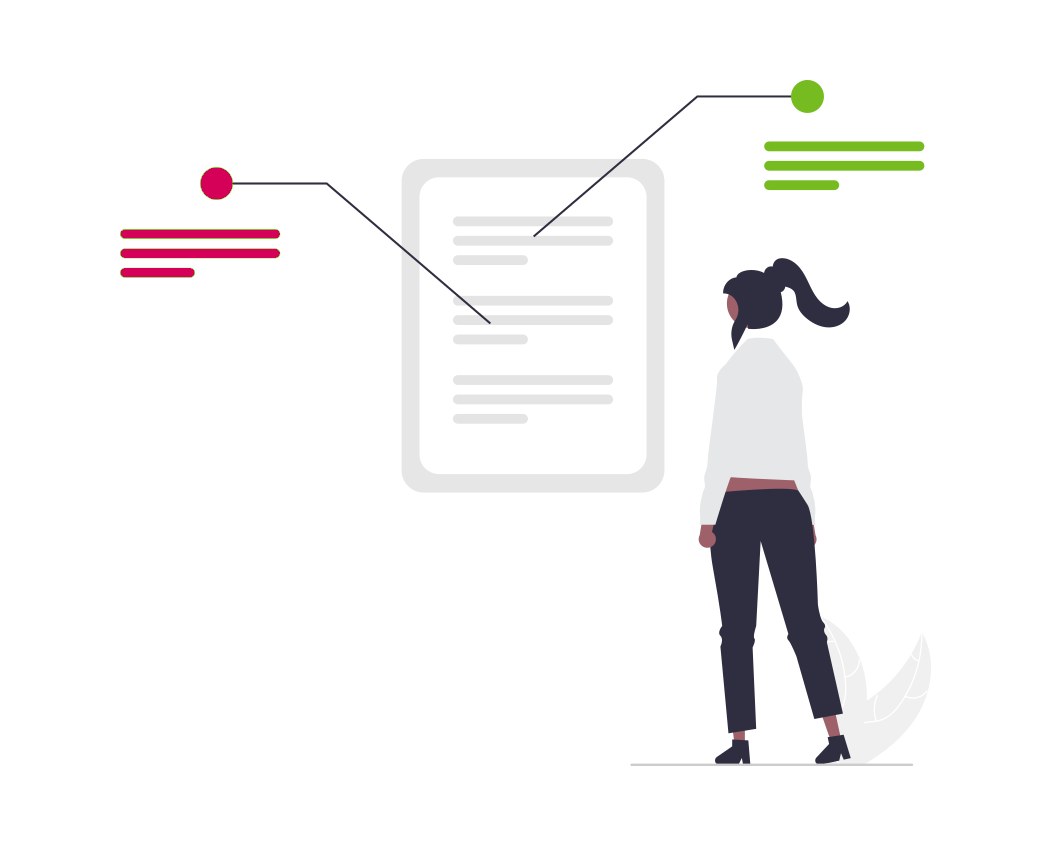Information Skills
Skills to apply, evaluate, and manage information across digital and physical environments.

Guiding Questions
- Can I use search strategies to find relevant information?
- Am I able to decide if information is current, accurate, reliable, and relevant?
- Can I organize information so that I can find it when I need it?
- Am I able to use and apply the information to meet a need or solve a problem?
- Am I able to recognize when I need to upskill?

![]() Open in Google Sheets
Open in Google Sheets![]() Open in Google SlidesFor more digital skills vocabulary resources, visit the Digital Skills Glossary
Open in Google SlidesFor more digital skills vocabulary resources, visit the Digital Skills Glossary
| Term | Definition |
|---|---|
| AI bias | (n) when an AI tool makes a decision that is wrong or problematic because it learned from training data that didn't treat all people, places, and things accurately |
| algorithm | (n) a set of steps or instructions that a computer or person follows to solve a problem or complete a task |
| assess | (v) to judge the value of |
| bias | (n) a preference in one direction that makes things unequal |
| credibility | (n) ability to be believed |
| critical thinking | (n) careful analysis of evidence, facts, and observations to make a judgment |
| deep learning | (n) a kind of machine learning where the computer uses many layers of information to recognize patterns and make decisions |
| digital literacy | (n) the ability to use information and communication technologies to find, evaluate, create, and communicate information, requiring both cognitive and technical skills |
| digital resilience | (n) having the awareness, skills, agility, and confidence to be empowered users of new technologies and adapt to changing digital skill demands |
| digital skills | (n) a range of abilities to use digital devices, communication applications, and networks to access and manage information |
| disinformation | (n) false information that is spread on purpose and is intended to mislead. |
| domain extension | (n) the last three or four letters of a website address (for example, .com, .org, .gov or .edu) |
| ethical AI | (n) the practice of creating and using AI in ways that are fair, safe, and respectful to people |
| evaluate | (v) to draw conclusions from examining; to assess |
| filter bubble | (n) when websites personalize content based on what you have clicked on in the past, limiting your ability to see new ideas and perspectives |
| generate | (n) the practice of creating and using AI in ways that are fair, safe, and respectful to people |
| generative AI (GenAI) | (n) a type of artificial intelligence that can create new content like text, images, music, or videos based on patterns it has learned from data |
| keyword | (n) a word used to find specific information in a document or on the internet |
| large language models (LLMs) | (n) advanced AI systems trained on large amounts of text to understand and generate human-like language |
| lateral reading | (n) a strategy to verify information about what you are reading. |
| misinformation | (n) news or stories that are not factual and are spread on purpose or by accident |
| natural language processing (NLP) | (n) A part of AI that helps computers understand, interpret, and respond to human language |
| output | (n) the final result or creation of an AI system, based on what it was asked to do and using its existing inputs |
| personalize | (v) to change something to fit a person's needs or likes |
| prompt | (n) a question, instruction, or input you give to an AI tool to get a response (v) to give an AI tool a question, instruction, or input so it can respond |
| recommendation algorithm | (n) a type of artificial intelligence that decides what content to show or curate for someone |
| reliability | (n) the quality of being dependable and trustworthy |
| search | (n) the results when one looks for information (v) look for information (on the internet, on a computer, in a document, etc.) |
| self-assess | (v) to evaluate or analyze one's own abilities, performance, or qualities |
| source | (n) the person or place from which information comes or is acquired |
| synthesize | (v) combine information from multiple sources, along with one's prior knowledge, to produce new content or understanding of a topic |
| training data | (n) the information used to teach an AI system how to recognize patterns and make decisions |
| validity | (n) the level to which something is true or reasonable |





